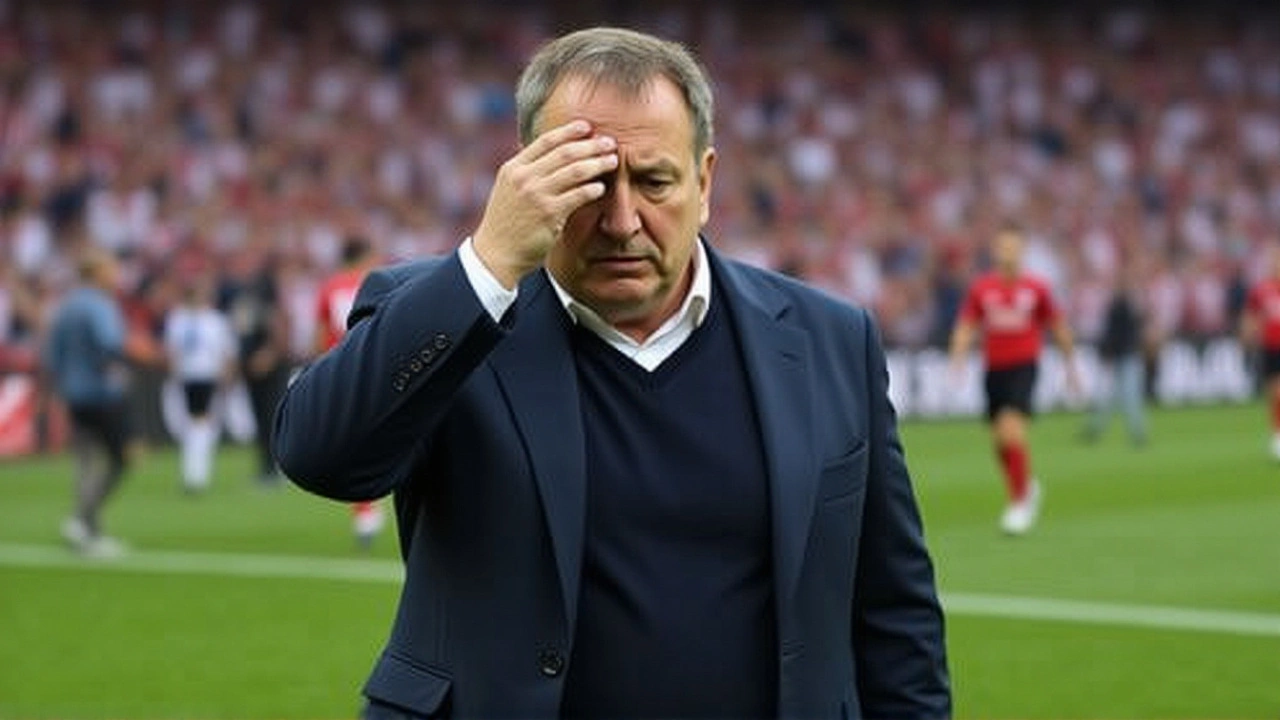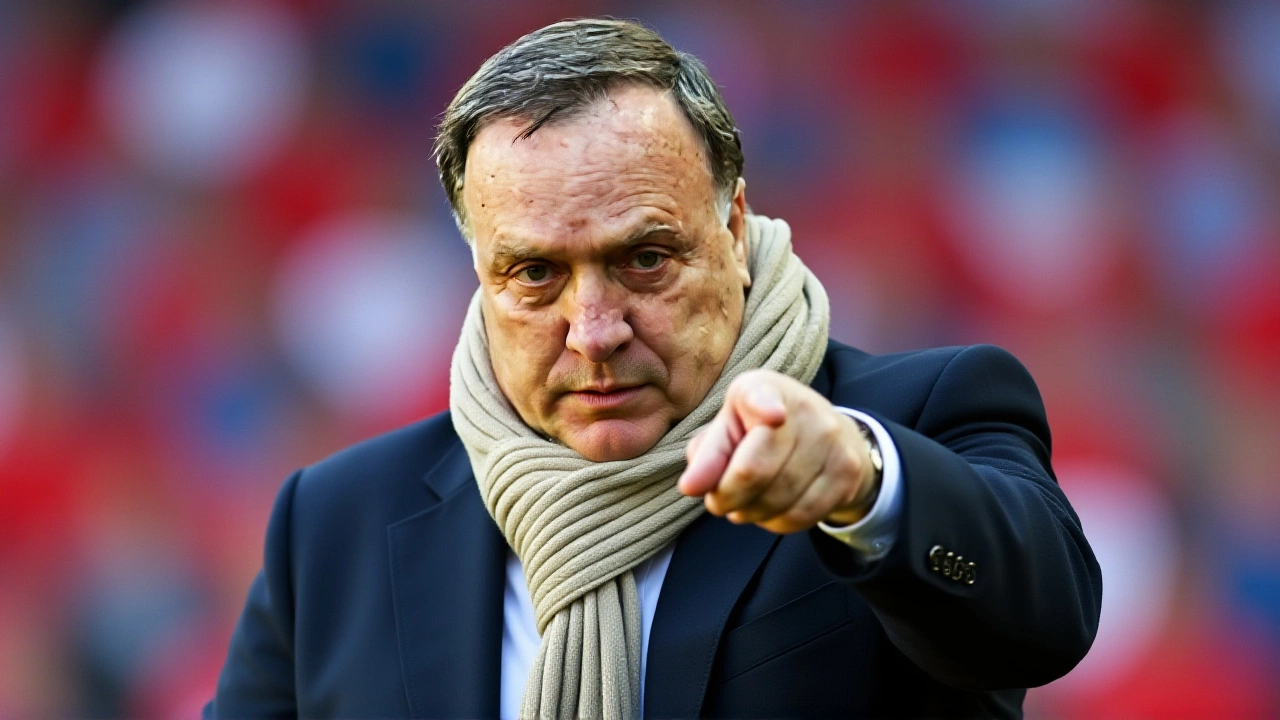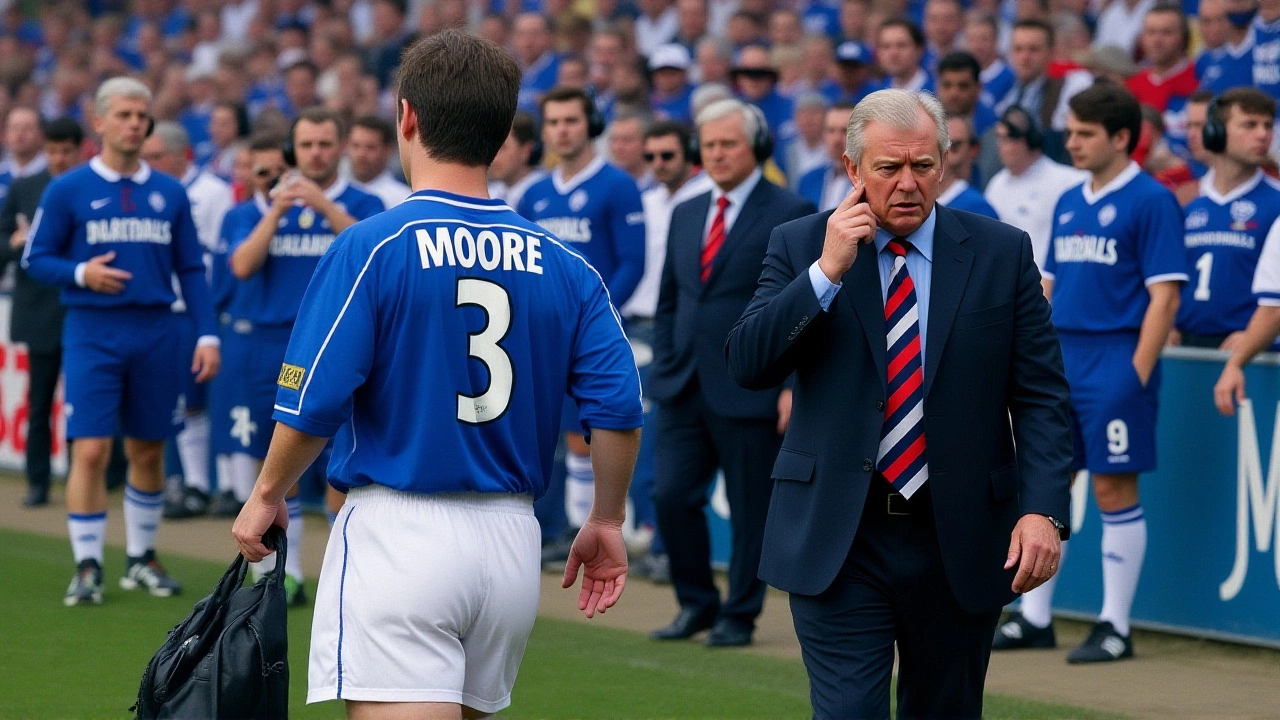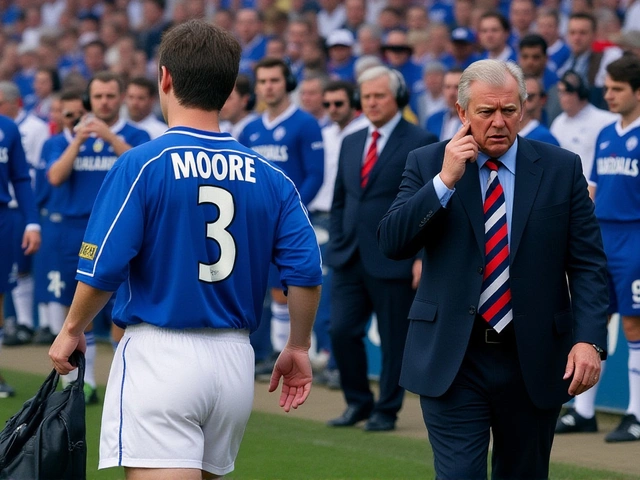When Dick Advocaat pulled Arjen Robben off the pitch during the Netherlands’ Euro 2004 match against the Czech Republic national football team, he didn’t just change a formation—he shattered a team’s momentum, ignited a firestorm of criticism, and ultimately ended his own tenure as manager. It was June 2004, in the group stage of the tournament, and Robben, just 19 and already electrifying crowds with his pace and vision, had delivered two assists in a match the Dutch desperately needed to win. Instead of building on that energy, Advocaat replaced him with the defensive midfielder Paul Bosvelt, a 33-year-old veteran known more for grit than flair. The crowd fell silent. The players on the bench stared. And within minutes, the Czechs struck—the decisive goal that eliminated the Netherlands from contention.
The Moment Everything Changed
The substitution didn’t just look odd—it felt like betrayal. Robben had been the brightest spark in a team struggling to find rhythm. His two assists came from blistering runs that stretched the Czech defense, creating space for others. Advocaat, reportedly worried about conceding on the counter, chose safety over spectacle. But football isn’t played in a vacuum. The moment Robben walked off, the Dutch attack lost its heartbeat. The Czechs, sensing vulnerability, pushed higher. Within 12 minutes, Jan Koller headed home a corner after a chaotic scramble. The final whistle at the Pavilhão Atlântico in Lisbon ended 3-2 to the Czechs. The Netherlands, once favorites, were out.What followed was worse than defeat. Teammates reportedly confronted Advocaat in the locker room. Veteran striker Patrick Kluivert later said, “We didn’t understand. Arjen was the future. We were playing for the present, but he was playing for fear.” Even Dutch pundits, usually loyal to their managers, called it “the worst substitution in national team history.” The media didn’t let up. Headlines screamed: “Advocaat Kills Hope.” “Robben Sacrificed for a Ghost.”
Resignation Under Pressure
Advocaat didn’t wait for the board to act. On July 6, 2004, he resigned—just weeks after the tournament ended. In his brief statement, he cited “mounting pressure and even death threats,” a chilling detail that revealed the depth of public fury. While the Football Association of the Netherlands (KNVB) never confirmed the threats, multiple journalists reported that Advocaat received anonymous letters and phone calls warning him not to return to the country. His family, he later admitted in interviews, was scared to leave their home.It wasn’t just the substitution. It was the culmination of a tournament where the Dutch looked disjointed. They’d drawn with Germany and lost to the Czechs, failing to score in open play against either. Advocaat’s rigid, pragmatic approach—once praised in Scotland—felt out of step with a generation of attacking talents like Robben, Wesley Sneijder, and Ruud van Nistelrooy. The fans expected fireworks. They got fog.

From Glasgow to the Edge
This wasn’t Advocaat’s first controversial chapter. Before the Netherlands, he’d managed Rangers Football Club from 1998 to 2001. There, he spent big—£12 million on Tore André Flo, then a record for the club—and clashed with players, famously labeling some “fat-necks” in press conferences. He won two league titles but failed to break Celtic’s dominance in his final season. By December 2001, with Celtic leading by 12 points and morale collapsing, he resigned after a 1–1 draw with Hibernian Football Club.His spending at Rangers became a lightning rod years later when the club entered administration in March 2012. Supporters blamed his transfer policy for financial overreach. Advocaat defended himself: “I did not think the club would go bankrupt.” But the damage stuck. Fast forward to 2024, and current manager Philippe Clement operated with just £13 million in the summer transfer window—despite the club being flagged on UEFA’s Financial Fair Play watch list. An August 2025 article on ibroxnoise.co.uk noted the irony: “Spending like Dick Advocaat but Rangers aren’t playing like him.”

Legacy in the Shadows
Today, Advocaat manages the Curaçao national football team, far from the glare of European football. He’s won no trophies there, but he’s rebuilt quietly, mentoring young talent. The ghost of Euro 2004 lingers, though. Robben went on to become a global star—two World Cups, a Champions League title, and a legacy as one of the most dazzling wingers ever. Advocaat’s name is remembered not for his successes, but for one moment when he chose caution over courage.It’s a lesson football still teaches: in the modern game, talent must be trusted. The best managers don’t just manage tactics—they manage belief. Advocaat lost that.
Frequently Asked Questions
Why was Arjen Robben’s substitution so controversial?
Robben was 19 and had just provided two assists in a high-stakes match, showcasing explosive pace and creativity that the Dutch team desperately needed. Replacing him with the aging, defensive-minded Paul Bosvelt was seen as abandoning momentum for fear. Players, fans, and pundits alike viewed it as a betrayal of the team’s attacking identity, especially since the Netherlands were already struggling to score.
What role did Dick Advocaat’s time at Rangers play in his downfall in 2004?
His Rangers tenure created a perception of rigid, financially reckless management. Spending £12 million on Tore André Flo and clashing with players earned him a reputation for being out of touch with modern football culture. When the Netherlands failed at Euro 2004, critics linked the tactical inflexibility to his earlier failures in Glasgow, making his substitution of Robben feel less like a mistake and more like a pattern.
Did death threats against Advocaat get verified?
No official investigation confirmed the threats, but multiple Dutch journalists reported receiving anonymous letters and phone calls targeting Advocaat and his family. The KNVB acknowledged the “intense public backlash,” and Advocaat himself cited safety concerns in his resignation statement. While unverified, the rumors contributed to his decision to step away from Dutch football entirely.
How does Philippe Clement’s spending at Rangers compare to Advocaat’s?
Advocaat spent £12 million on a single player (Flo) in 2001, with total transfer outlays pushing the club toward financial strain. Clement, managing in 2024 with the club under FFP scrutiny, worked with a £13 million budget across the entire summer window—far more constrained. The contrast highlights how financial controls have tightened, making Advocaat’s era seem almost reckless by today’s standards.
Is Dick Advocaat still involved in football?
Yes. Since 2021, Advocaat has managed the Curaçao national football team, focusing on youth development and regional tournaments. He’s no longer in the European spotlight, but he remains active, quietly rebuilding a team with limited resources—a far cry from the pressure-cooker environment of Euro 2004.
What happened to Paul Bosvelt after the substitution?
Bosvelt retired from professional football in 2005, shortly after Euro 2004, and transitioned into coaching youth teams in the Netherlands. He rarely speaks about the substitution, but in a 2019 interview, he said, “I was just doing what the manager asked. I never thought I’d be remembered for it.” His name is now mostly a footnote in football history—a symbol of misplaced pragmatism.

